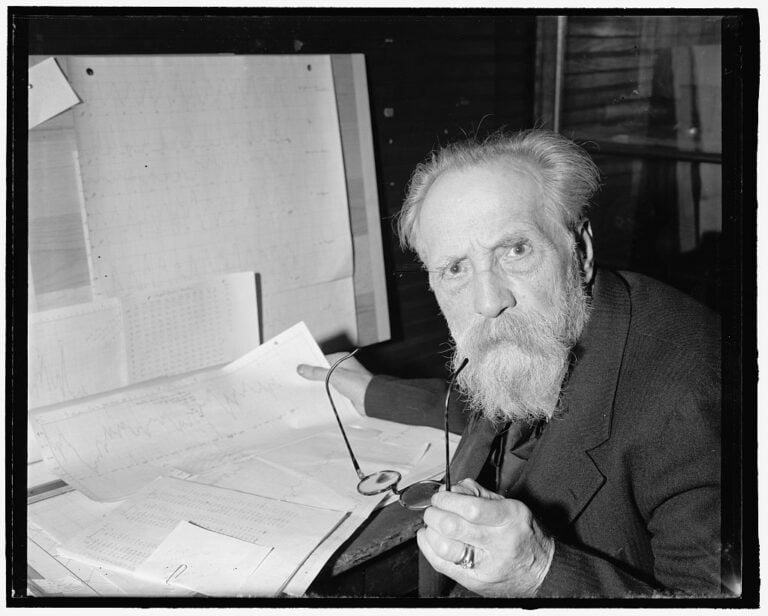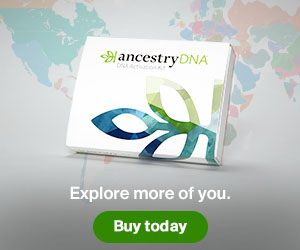What’s a genealogy know-how rating? It’s a number from 1– 50 that you can use to your level of ‘knowledge’ as a family history researcher. The greater ball game, the more experienced you are on the topic.
This test is developed to be enjoyable, to offer you a laugh and something to show pals. It’s likewise a terrific way to assist you recognize areas where you can improve your research study methods and end up being a better family historian! Response NO to a declaration and you’ve found an area you may wish to check out and improve on.
To take the quiz read each declaration listed below. If the statement describes you then you get one point. If it does not, you get zero points.
You’re going to need a notepad and pen, or an open note pad on your computer to keep an eye on your rating (unless, naturally, you have an amazing memory and wish to determine the score in your head).
Once you’ve built up your rating, match it to the genealogy categories below to learn your level. And do not forget to post your rating in the remarks!
Remember, this test is just for fun … it does not cover every essential research study topic (by a long shot).

Prepared to start? Here we go …
Remember, offer yourself 1 point for every statement that correctly defines you.
1. I have an offline or online family tree that I place all of my info in.
2. I save all of my family tree information in at least 2 different locations to decrease the chance of loss (ie online and on your computer system, or on your computer system and on a back up thumb drive or disk).
3. I utilize at least 3 different genealogy resources regularly.
4. I utilize a minimum of 10 separate genealogy resources on a regular basis.
5. I feel great utilizing search engines like Google to look up new resources for family history research study.
6. I know the important distinctions in between a primary and secondary source.
7. I always ensure each and every single event in my tree is backed up with a minimum of one reputable main source file.
8. I constantly make certain every occasion in my tree is supported with at least 2 credible source files (a minimum of 1 primary and 1 or more main or secondary).
9. I never copy and paste other individuals’s details in to my own tree without carefully verifying each information and gaining consent when needed. I generally just utilize other people’s trees as a recommendation tool.
10. I never ever trust and repeat what I discover online (in a tree, on a site or in an index) unless I know it is backed by a credible primary source or several secondary sources.
11. I am valuable to other scientists when I can and share my info when it is appropriate.
12. I comprehend what a wildcard search is and understand how to utilize one to further my research.
13. I regularly include more than simply names and dates to my family tree (ie occupations, household stories, images).
14. I have a research study strategy with clear objectives and stay with it as much as I can.
15. I have actually been understood to invest more than 4 hours at a time on genealogy research study.
16. I have spoken with as lots of loved ones as I reasonably can about their family memories and knowledge.
17. I know much better than to believe everything I speak with my family members.
18. I realize that there is terrific value in looking into household stories, even if they seem not likely and even if I show up something totally various from what I anticipated.
19. I always spend some time to take a look at the cousins, brother or sisters, aunts and uncles of my forefathers to increase my probability of uncovering details.
20. When looking at a census record, I do not take what I see at face value however realize that census takers often made errors which I should verify all details in other places.
21. I always inspect the census page before and after that which my ancestors are found on because I know loved ones often lived neighboring and their details can be extremely valuable.
22. I take my household history research seriously due to the fact that I know that what I record, others are most likely to believe and duplicate in the future.
23. I forgot to do at least one task today because my genealogy research study was more vital.
24. I have actually read several genealogy books composed by professionals.
25. I often utilize social networks to make household history connections and discoveries.
26. I know how to discover free records online to complement any paid memberships I have.
27. I regularly do research offline, such as at a household history research center, library or historic society.
28. I have a safe in my home just to save old household pictures and souvenirs.
29. I remain organized and set objectives with a program like Evernote or Trello.
30. I already understand the significance of the terms Ahnentafel chart, PERSI, probate, soundex, gedcom and SSDI.
31. I’ve looked into the meaning of my household’s surnames or belong to a surname research group.
32. I routinely look beyond apparent records to find unusual sources of information (such as city directory sites, old books or pension records.).
33. I’ve done genetic genealogy screening and comprehend how the results associate with my research.
34. I belong on an online or offline genealogy research group.
35. I only share household research study info I have actually carefully looked into, or I let the individuals who I share with know that the information may not be accurate.
36. I’ve done so much research I have developed a minimum of 2 significant genealogy animal peeves.
37. I routinely look to others who have more genealogy know-how than me for help or inspiration.
38. I understand how to appropriately digitize and maintain my household’s old pictures or files.
39. I have logged more hours on genealogy research than on any other hobby today.
40. I know the distinction in between an original record and a transcription.
41. When looking into ancestors I keep in mind to check very first and last name variations to increase my possibilities of discovering a match.
42. I search out initial records when they are offered, rather than depending on indexes or transcriptions.
43. I can state honestly that I have more genealogy concerns than I have answers.
44. I know which US census is the ‘missing’ census.
45. Dick Eastman is my favorite. blogger. ever.
46. I have actually taken a genealogy course or webinar to help me with my research study.
47. I can read baptismal records (or other family history documents) in more than one language.
48. I am familiar with and frequently utilize updated genealogy research standards.
49. I’ve been doing genealogy research study for more than 3 years.
50. To me, genealogy is more than simply including names to a tree, it’s about building an accurate, well-sourced family story for generations to enjoy.
That’s all! Now overall your score and see what category you fall under listed below!
1-10: The Genealogy Newbie– you’ve just begun your research but you’re having a good time and aspire to find out!
11-25: The Brave Family History Adventurer– you’ve successfully made it past the early phases, and are brave enough to continue into the unidentified …
26-35: The Family Tree Climber– you’re not quite to skilled level yet, but you’re developing some major genealogy know-how.
36-46: The Genealogy Go-to-Gal (or Guy)– everyone asks you about the household’s history and you’ve discovered to bring your research study to every.family.gathering.
47-50: The Family History Know-it-All– yep, that’s a good idea, a truly good thing.
Have a low rating? Do not feel bad! Every researcher is different, and it requires time (and lots of research) to learn the ropes. Plus, we haven’t covered everything here … not by a long shot. You may have lots of abilities we didn’t even list.
Remember, this quiz is expected to be fun and assist you recognize locations where you can enhance. Go back and take a look at the concerns you got no points on and attempt to implement a few of these techniques and ideas into your research study. You might be stunned just how much they can help.

Leave a Reply